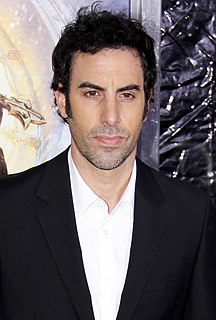A Quote by Anne Waldman
It was really hard coming to terms with the Nazi history. Then in my twenties I was traveling to Germany. There was a lot of poetry activity and some of my first readings abroad and trying to relate with people my own age there and what they were discovering and learning had to examine in terms of their backgrounds. Then so many of my friends had family who had either perished in the holocaust or survived in the holocaust. It was very palpable.
Related Quotes
We always see the Holocaust in terms of black-and-white images, barking Germans, cowering Jews. We know very well-known fixed places like Auschwitz, Birkenau, Treblinka, and Beltzec. Instead, war can live in a couple having a spat, when we say, "That was a real war." We very rarely have the Holocaust live in the terms of today. And I think that's a problem, because it becomes ancient history.
My mom, for most of her life, was a Holocaust denier. And it was terrible for the entire family to have to deal with until, finally, a couple years ago, we had an intervention. And we had a rabbi come into the home, had him walk her through the history of the Jewish people, and then he made her watch "Schindler's List." And after that, my mom did a complete 180. Now she can't believe it only happened once.
In my terms, I settled for the realities of life, and submitted to its necessities: if this, then that, and so the years passed. In Adrian's terms, I gave up on life, gave up on examining it, took it as it came. And so, for the first time, I began to feel a more general remorse - a feeling somewhere between self-pity and self-hatred - about my whole life. All of it. I had lost the friends of my youth. I had lost the love of my wife. I had abandoned the ambitions I had entertained. I had wanted life not to bother me too much, and had succeeded - and how pitiful that was.
Had the Holocaust happened in Tahiti or the Congo, as it has; had it happened in South America, as it has; had it happened in the West Indies, as it has - you must remember that within fifty years of Columbus's arrival, only the bones remained of the people called the Arawaks, with one or two of them in Spain as specimens. Had the Holocaust committed under the Nazis happened somewhere else, we wouldn't be talking about it the way we talk about it.
I remember, when I was in university I studied history, and there was this one major historian of the Third Reich, Ian Kershaw. And his quote was, 'The path to Auschwitz was paved with indifference.' I know it's not very funny being a comedian talking about the Holocaust, but I think it's an interesting idea that not everyone in Germany had to be a raving anti-Semite. They just had to be apathetic.
Why is it, that there's no movies, very little very little attention about the greatest Holocaust in the history of the world which was the Holocaust against Christians by the Soviet communism.And that's my point. We have a controlled media today that talks about the Holocaust, but they don't talk about the death and destruction of tens of millions of Christians...Which was a bigger Holocaust.
I had a kind of tough early life. I had a tough time in school. I had an unsympathetic family in terms of what I was trying to do. I decided that my family situation was simply hopeless. I kinda bailed out, and my brother and sister didn't. I failed at marriage, which I'm very upset with myself over.
I've had a chance to meet some of my civil rights heroes and, more recently, members of the young generation around [Barack] Obama, people in their teens and twenties who were determined to make history and who were too idealistic to think that what they were trying to do might be impossible. They proved that visionary pragmatism can win over the majority. That comes from a particular place in your heart that generation Y is offering America. They just can't afford to be naive now, in terms of the ferocity of the opposition.






































